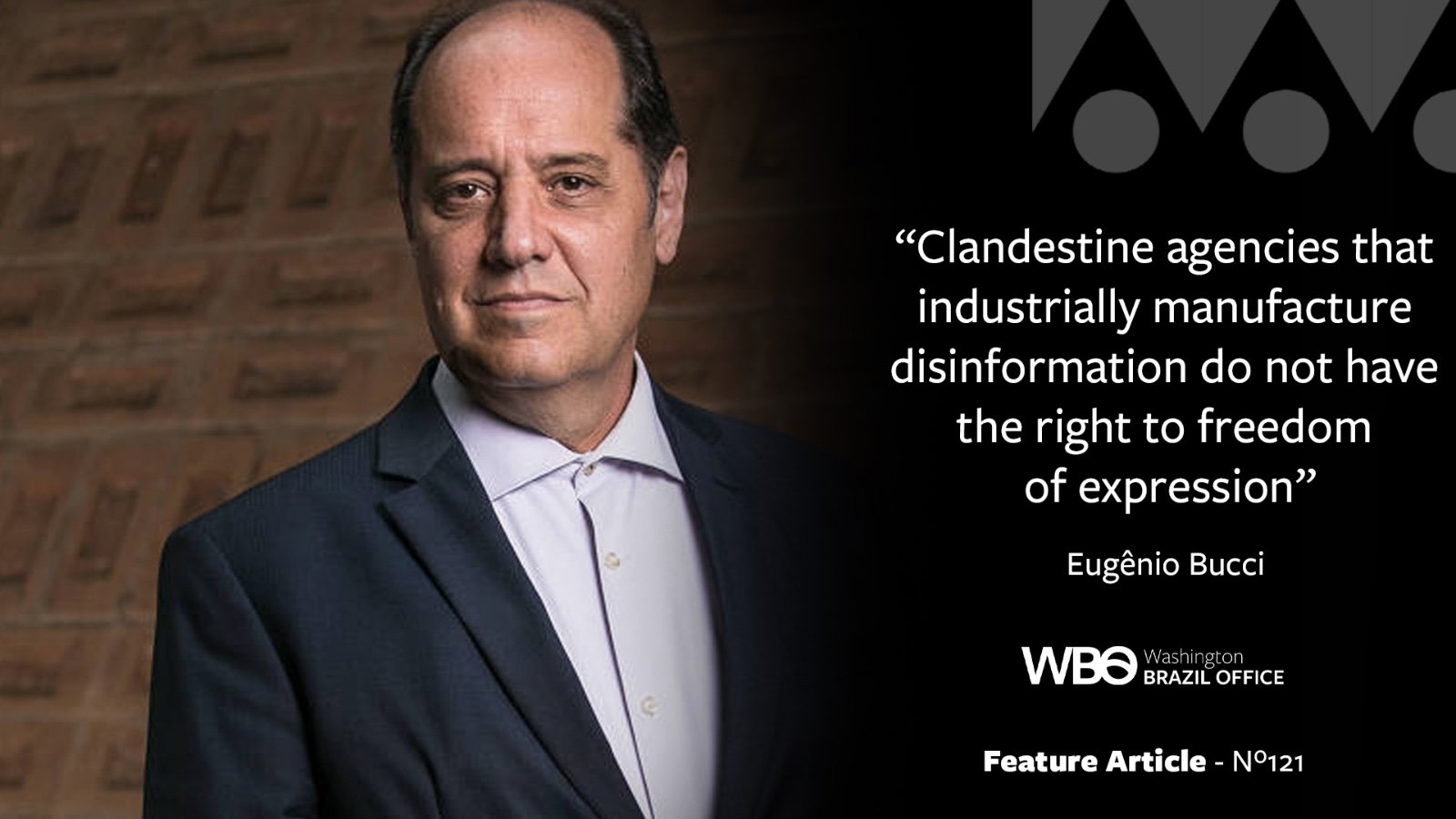Lies about Freedom of Expression
Eugênio Bucci, journalist and full professor at the School of Communication and Art at the University of São Paulo. This article was written especially for issue 121 of the WBO weekly newsletter, dated June 14, 2024. To subscribe to the newsletter, enter your email in the field below.
The floods in the Brazilian state of Rio Grande do Sul, which lasted between April and May 2024 leaving 170 dead and more than 735 thousand homeless (as of June 10, 2024), provided the pretext for a new avalanche of fake news. In short videos that circulated massively on social (or, more precisely, antisocial) networks, a profusion of lies took over all these spaces. Some claimed that it was useless to make donations to the victims because the federal government was blocking trucks heading to Rio Grande do Sul. Others maintained that the army and firefighters were denying help to the homeless. Like these two examples, there were – and still are – many other fake versions of news circulating in Brazil. They hampered assistance to the affected populations, sowed confusion, increased chaos, spread panic, and discredited the authorities and volunteers who supported rescue and aid operations. All this material – spread by anti-democratic far-right activists – worsened the disaster, which sociologist Sérgio Abranches called a “socioclimatic tragedy”.
Why have things reached this point in our societies? How did disinformation gain so much momentum, and why does it corrode democracy from within? Many explanations have appeared and deserve attention. In this brief article I will try to explain two reasons for what is happening. In part, I will use arguments that I recently presented in an article for the newspaper O Estado de São Paulo (“Fake Liberty and the Marquês de Sade,” May 16, 2024, p. A5).
It is necessary to consider that the large-scale production of these falsehoods constitutes a super-industrial activity, which mobilizes expensive and complex resources with one essential characteristic: it works in the shadows. The centers that generate fraudulent content are hidden; they do not work in daylight. They are invisible. Those who do appear are a few politicians from the anti-democratic far right and the crowds of supporters who work for free to spread disinformation.
Amid this spectacle of horror and contempt for the human beings, one speech in particular caught attention. Defenders of organizations that distributed fake news claimed that the liars were simply exercising their “freedom of expression.” With this justification, they produced yet another untruth – and one of the most serious.
Firstly, it is untrue because the clandestine agencies that industrially manufacture disinformation do not have the right to freedom of expression. It's not difficult to demonstrate why. Freedom of expression is a right of human being, not of legal entities or criminal organizations. The State, companies, and political parties do not have freedom of expression, as they are not human beings. Therefore, as I have been saying, freedom of expression is a human right of people of flesh and blood and not an economic or corporate license.
In short, when big tech promotes falsehoods that harm the public health and physical integrity of real people, it is not freedom of expression we are talking about, but the abuse of economic power. The purpose of this abuse is to manipulate the masses for hidden electoral purposes.
What about the citizens – the unfortunate people who allow themselves to be manipulated – who work for free to spread fake information? These people do have the right to freedom of expression, but they get everything wrong. They conceive of freedom as if it were not a civilized right, but a kind of open gate to give vent to visceral, animalistic, and brutal impulses. For them, freedom would be the triumph of the animal over the human. With this type of idea in their heads (in fact, a non-idea), they use their own freedom to destroy the freedom of everyone else.
In a book released a few weeks ago in Brazil (O mala-estar na cultura revisitado, organized by Lucia Santaella and published by Estação das Letras e Cores), psychoanalyst Ricardo Goldenberg makes a great contribution to understanding this savage mentality. In his essay, “From Cynicism to Shamelessness,” Goldenberg locates in the Marquis de Sade (1740-1814) the fantasy that “individual freedom” would include a supposed “right” to “enjoy others without any hindrance” (“enjoy,” here, is synonymous with abuse).
In Sade, I add, the “free” subject combines the worst vice of the aristocracy (disposing of the body of others as he disposes of the land) with the worst vice of the bourgeoisie (exploiting the energy of others to accumulate money and pleasure). He is an amoral subject, murderer, torturer, pedophile, rapist, and dictator. What he professes is not the freedom that underpins democracy, but fake freedom, sadistic freedom, which in essence is the denial of all freedom.
This illness of social mentality, this madness of the masses, is part of the tragedy that befell Rio Grande do Sul and is one of the reasons for the institutional collapse that is manifesting itself in so many democracies around the world.

